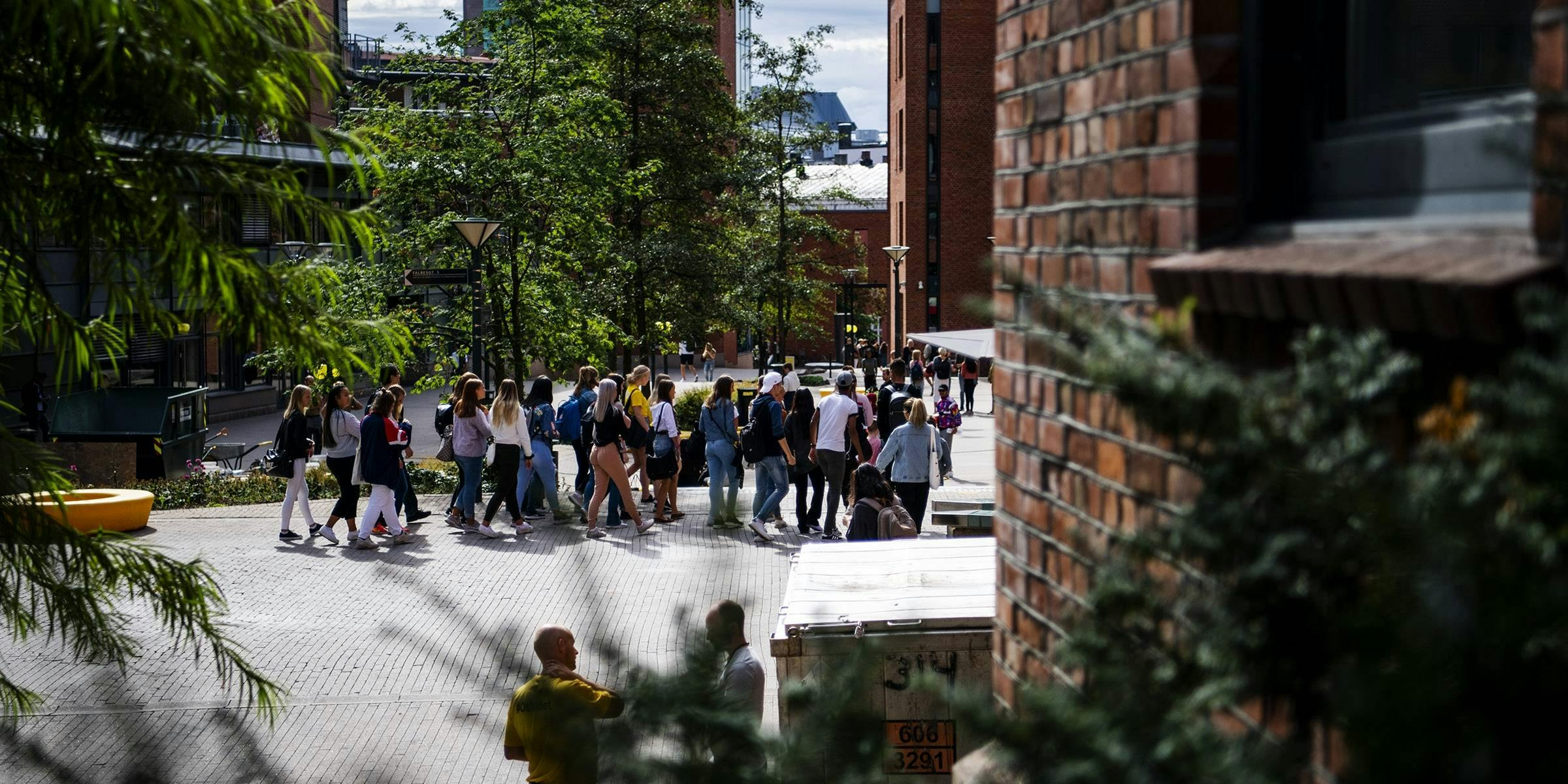Sustainable welfare in a global context
In September 110 scholars attended the RC19 conference in Oslo to discuss research on global social policy and social policy globally. This year the main topic was “Sustainable welfare in global context: responding to societal and environmental transformations”. The conference was opened by State Secretary Per Olav Hopsø (Labour Party), from the Norwegian Ministry of Labour and Social Inclusion.
The keynotes, plenary panels and parallel sessions addressed fiscal, political, social, moral and environmental dimensions of “sustainable welfare”. Many of the discussions touched on the intertwined experiences of the Global North and Global South, and the interrelationships between social policies and climate policies. Several participants called for new conceptualizations, data and methods to examine such interdependencies.
Where:
Pilestredet Campus
Pilestredet 46, KK-senter and Athene
Oslo, Norway
When:
4 September 2024 09:00 to
6 September 2024 16:00
Call for papers for Sustainable welfare in a global context
Here you will find information on the call for papers for the conference.
Context
Welfare systems are experiencing structural transformations that require new and critical examination of the traditionally shaped social policy paradigms. The economic and social values that have shaped past policies in mature welfare systems are being questioned while developing welfare systems face mounting challenges.
Rethinking sustainable welfare or sustainable welfare models is compelled by a series of interrelated societal changes that have become pressing globally: demographic and family changes, new migration patterns, the digitalisation of labour and public services, and the green transition.
There is a need to better understand how historical power relations have shaped social inequalities and injustices we see reflected in society today. Migration and green transition come from inequalities that have long been building. This is also true for many humanitarian catastrophes, including ongoing wars around the world. In other words, there is a need to move beyond focusing on the present only and bring in a historical perspective.
The societal and environmental transformations pose significant questions about the future organisation of welfare systems. There is a need for attention to how wars affect global social policy and social policies globally, as well as implications of war and forced displacement for people's well-being on a daily basis.
The transformations and ongoing crises raise concerns about new and intersectional inequalities and the need to critically examine existing policies. There is an urgent need for robust comparative research to link policy interventions to outcomes.
Sustainable welfare is a contested concept that still needs to be theorized. It is unclear what sustainable welfare means in practice and how it can be achieved.
Some scholars first and foremost focus on the need for green transition, whether from a growth or post-growth perspective. Other scholars argue for a broader conceptualisation and the inclusion of a focus on other structural transformations such as demographic and family change to critically assess the sustainability of existing welfare systems.

Key Dates
- Submission of abstracts: 15 March 2024
- Acceptance of abstracts: 10 April 2024
- Registration opens: 12 April 2024
- Regular registration deadline: 30 June 2024
- Full paper submission deadline: 31 July 2024
Pitch your book session
Please contact the local organizing committee if you would like to present your new book.
Conference fee
NOK 1500. This is including lunch, coffee, dinner.
What are we looking for?
The organizers of the 2024 annual conference invite papers that discuss drivers and challenges of social policies, including but not restricted to sustainable welfare. Papers can have a global, world-regional, national, subnational, and/or local perspective.
RC19 encourages comparative and transnational research. Especially welcome are theoretically-grounded empirical papers. Papers exploring new theoretical concepts and research methods in social policy are also welcome.
The annual conference will bring together an active and lively community of scholars from different fields of social policy studies, ranging from PhD students and early-career researchers to established scholars. Beyond the broad theme outlined above, we also invite RC19 members to present their recent work, even if they are not closely connected to that theme.
Abstracts from non-RC19 members are most welcome, but all presenters must be members of RC19 by the time of the conference. To become a member, please contact our treasurer, Hildegard Theobald.
Abstract submission
You are invited to submit an abstract of about 350 words, including information on the name(s) and affiliation(s) of the author(s) and the email address of the corresponding author in a word document. Please submit your abstract via email.
The organizers encourage authors to include information about the empirical basis of their paper in the abstract.
The deadline for abstract submission is 29 February 2024.
Paper submission
Please bear in mind that, to facilitate constructive and in-depth discussions, RC19 expects authors to circulate full papers by the submission deadline 15 July 2024. Full papers should be maximum 8 000 words, including bibliography.
Discussants
Most of the conference will be organised according to "Korpi's rules", which have made RC19 meetings famous for their intellectual liveliness and seriousness. Walter Korpi, past president of RC19, instituted the following workshop-style meeting format to foster lively discussions during the conference:
- Full papers are circulated (and read) in advance by all participants of the respective panel.
- At the conference, a discussant designated by the conference organizers briefly presents the paper and comments on it (12 minutes).
- The author(s) of the paper has/have a limited time to react to the discussant's presentation (3 minutes) so as to leave room for a general discussion (15 minutes).
More information
For any questions regarding the conference and the call for papers, please send an email.
For more information on the Research Committee (RC) 19 on Poverty, Social Welfare and Social Policy of the International Sociological Association (ISA), please visit our website (rc19.org).
Local organizers at OsloMet
- Alban Davesne
- Erika Gubrium
- Rune Halvorsen
- Alejandro Miranda Nieto
- Randi Wærdahl
- Mi Ah Schoyen
- Elisabeth Ugreninov
- Axel West Pedersen
Contact us
Rune Halvorsen
Professor
+47 672 38 078
|
rune.halvorsen@oslomet.no
Upcoming Events
Knowing Justice in the Anthropocene
RC19 will have 22 sessions at the ISA Forum 2025
06 Jul 2025 - 11 Jul 2025
Faculty of Education at Université Mohammed V de Rabat (Morocco)
Useful links
Designed by
